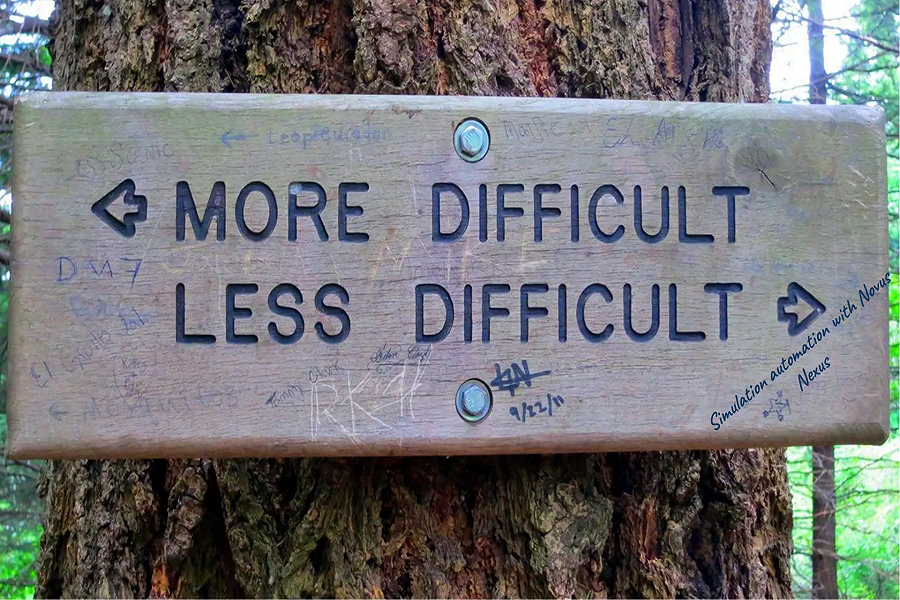-
 Davis Evans
Davis Evans
- Feb. 9, 2023
Capturing experience + knowledge: Creating practical, reusable templates in the simulation world
<div class="text-justify"> Designing a product and then seeing it perform well is the dream of every design engineer—when this goal is achieved, all the work that went in feels justified. Many times, however, products can’t always be validated via efficient simulations before prototype and build phases, and in-spite of knowing the ins and outs of their designs, engineers aren’t always able to provide the adjustments needed to ensure reliable target performance. We fully recognize that validating a given product design with confidence through virtual tests is no walk in the park. It often takes many years to gain the expertise required to effectively utilize specialized CAE tools and be able to interpret report result insights to modify an initial design, then reapply the same process for successive conceptual design iterations. The resources required to really take advantage of such processes are often time and cost intensive, as well as expertise exclusive. These pose significant challenges to the modern organization wanting to capitalize on simulation’s proven benefits. The goal is still the same: create products whose performance meets or exceeds design requirements. The question now becomes: how can one better leverage, that is, more systematically and efficiently utilize the suite of complex CAE tools available today to constantly, predictably meet this goal? <br/><br/>
Many companies try varying approaches on this concept looking for that competitive edge for their product development cycles. But too often they are bogged down by complex scripts, time delays due to excessive maintenance and troubleshooting, or decreases in the reliability of simulation result. What’s more, many of the current automation strategies encounter similar bottlenecks whether from being solver specific or expertise dependent again at the automation level. To positively impact the overall design process through actionable early stage insights, without encountering the above challenges, we need an automation method that is easy to implement and maintain, flexible in applicability, and timely without affecting dependability. The key lies in effective knowledge capture.<br/><br/>
Imagine a way to transfer the experience and knowledge of those highly trained simulation engineers within your organization into universally applicable blueprints through creating compact simulation templates. Moreover, imagine that these templates could integrate seamlessly into the design process, being easy to reuse across multiple solvers and geometry iterations, even for those members of your organization without such expertise in the simulation domain. By putting compact, efficient, and broadly accessible knowledge capture at the center of the automation strategy, the normal development workflow itself becomes the opportunity to capture product knowledge from designers, virtual validation parameters from simulation engineers, and testing environment specifics from test engineers. This process ensures that each subject expertise remains available and viable in the form of a compact, flexible, and adaptable template. This has proven achievable at Novus Nexus, and the results are astounding.<br/><br/>
Drastic increases in the number of design concept evaluations possible with validated results, as evidenced by CAENexus customers, were not possible earlier due to dependency constraints and lack of specialized knowledge. To achieve this CAENexus relies on efficient knowledge capture, collating modular “Abstract Model Files” (AMFs) into a master AMF, which combines expertise from simulation engineers (meshing, simulation solver related parameters), design engineers (product knowledge about functioning, material etc) and testing engineers (loading details etc). The result is highly functional and geometry independent templates that can be reused even by persons without expertise in the domain. Unlike custom scripting approaches, maintaining and using such abstract model templates is very easy, efficient, and highly flexible in application. <br/><br/>
If you are wondering if this kind of template could help your organization take better advantage of your existing knowledge, experience and best practices, while at the same time making them easier to access and reuse across multiple projects, please contact Novus Nexus at info@novusnexus.com <br/><br/>
Davis Evans <br>
Business Development Lead <br>
Simulate better with <span class="blue-text">us</span>.<br>
<a href =https://www.novusnexus.com >www.novusnexus.com</a></div>

